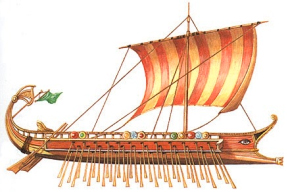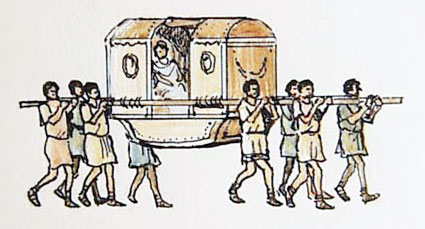Cultural differences and what this really means for the CoS
I try to write so as to follow the Second Rule for Happy Living: Cause only those effects that can be easily experienced by others.However, on some topics such as Data Series 40, The Ideal Org, almost any observation can raise hackles if the audience has radically different cultural backgrounds. That happens because the cultural benchmarks of one culture can look like False Data or even heresy to another culture.
With that as a reference, you might understand that there may be varying responses to the rest of this article. What is true for some may be indigestible and repellent to many.
CHURCH OF SCIENTOLOGY CULTURE - THEN VS. NOW
In the early years of Scientology, staff and executives were a mixture of individuals with extensive corporate and life experience and people who were right out of school. There were many in the early days who were able to look at church practices and see things that ran counter to the best practices of daily life and business success. Most of these people eventually left the church.At the current time, there are many who have literally grown up in Scientology or in the closed society of the Sea Org. Their only point of reference is LRH policy and “Command Intention” as expressed by church management. These people seem to have have little reality on how large non-scientology companies work together and function internally.
Those who have never enjoyed success in the outside world may have difficulty understanding how high salaries, corporate perks and fantastic bonuses actually come about. It is not magic, only good business sense and ethical treatment of customers and employees.
WHAT DOES THIS HAVE TO DO WITH THE IDEAL ORG?
Ron may have originally postulated an organization where man knew he could go free, but that ideal morphed into something more like a trireme. Sea Org staff are essentially chained to their oars until they are discarded. The trireme was the most fearsome fighting ship of its time. but it succeeded at a terrible cost in terms of human suffering.
The trireme was the most fearsome fighting ship of its time. but it succeeded at a terrible cost in terms of human suffering.It should be noted that originally the oarsmen of these ships were Greek citizens who volunteered to serve.
It didn’t take long before the oarsmen consisted of conscripted slaves and criminals.
The captain and the elite officers traveled in style and the crew below decks lived in misery until they were discarded.
 The behavior of David Miscavige is much like the leader who rides a massive sedan chair to attend conferences on relieving human suffering.
The behavior of David Miscavige is much like the leader who rides a massive sedan chair to attend conferences on relieving human suffering. He wants the benefits of prosperity and does not understand that human suffering and spiritual freedom are diametrically opposed. One does not get spiritual freedom by trafficking in human suffering.
MOTIVATING STAFF
If you have never worked in a prospering non-scientology organization, it may seem unreal that those organizations often get you to produce miracles and work Sea Org hours merely by suggesting that you will not get to work on the next exciting project if you fail to meet deadlines. |
| The behavior of David Miscavige is much like the leader who rides a massive sedan chair to attend conferences on relieving human suffering. |
When these non-Scn organizations were prospering, they picked creative people and gave us all the carrots we could earn. We applied the stick to our backs with great relish so that we could enjoy the freedom to create and we prospered accordingly.
When the bean counters eventually took over, the carrots were rationed, many reports were required, and management tried to exploit the original entrepreneurial spirit while withholding the original rewards. This was not so terrible because we would all jump ship and find a new organization to join.
That is not an option in the Church of Scientology. Staff are treated more like galley slaves than crusaders out to make a better world.
Since the church is being run by people who have had no life outside of Scientology, it is not unreasonable to expect they will know little of practical management. The only way they manage is to apply more duress to the staff in order to meet increasingly unreal targets. Since much of upper management is no longer on post, it suggests that the current operating model is crumbling.
THE FUTURE
It may be that the current CoS culture is seeing its last days. It is certainly time for a cultural shift.The best companies I knew took employees and customers up with them as they succeeded and the word of mouth advertising was unbelievably good.
There is a lesson to be learned there.
The CoS will not survive unless it starts listening to feedback from customers and staff.
POSTSCRIPT
As a Mission Holder I dealt with new public every day. Our success depended on our mission culture being totally acceptable to these new people from the moment they walked in the door. People re-signed again and again because of the service we provided and they told their friends about their wins.
We kept a framed copy of The Ideal Org in the lobby of our mission where public could see it as soon as they entered the building. It was a constant reminder of what we were trying to achieve.
Written by Old Auditor